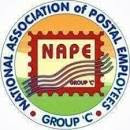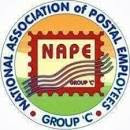7th Pay Commission – Full Text of letter addressed by Union
Minister to Prime Minister in support of early setting up of seventh Pay
Commission
Shri.Ajay
Maken, Union Minister has recently addressed a letter to Prime Minister for
early setting up of Seventh Pay Commission
The
following is the full Text of Letter dated 14th March, 2013 to Prime
Minister by Shri Ajay Maken, Union Minister regarding request to early setting
up of Seventh Pay Commission.
March
14, 2013
It
is with a sense of pride that I seek to underline that about 3,2 million
Central Government Employee and an equal number of pensioners
inducting service personnel, hold you in high esteem and think of you as one
amongst them. They look up to you as a leader who would not only empathize with
their concerns but ensure deliverance as well. It was you who had constituted
the Sixth Central Pay Commission (CPC) in 2005 which should have been set up in
2003 by the NDA Government.
2)
Central Government Employee who are inducted in Government through a process of
rigorous screening and testing as also stringent evaluation of a
job performance are supposed to be the brightest. With globalization
and multinational corporation coming into the country, we have at hand a
two fold challenge:
(a)
do have a personnel pool with high acumen to deal with these MNCs,
(b)
simultaneously a dress the challenge of high attrition on which in itself is a
result of MNCs having come in. In order to attract as also retain the brightest
minds in Government employment it is but necessary that Central Pay Commission
are set up regularly to look into and evaluate their pay structures and submit
recommendations.
3)
Ever since the setting up of the second Central Pay Commission all pay
commissions have been set up in the 3rd year of every decade baring the one
time when the NDA Government did not do so in the year 2003. The pay
commissions are then required to submit their recommendations/reports in three
years time. However, you had set up the sixth pay commission in 2005 and submitted
its report in an year and half, much to the relief and succor of Government
employees. We are again in the third year of the on-going decade and Central
Government Employees are justifiably looking forward to the Seventh Pay
Commission that would look into their needs.
The
present wage structure of the Central Govt. Employees has been made
on the basis of the Sixth Central Pay Commission’s recommendations, which were
implemented with effect from 11.2006 in the case of Pay and in the case of
allowances with effect from 1.9.2008. The erosion of real wages owing to the
degree of inflation in the economy is hurting these employees very badly. The
retail prices of those commodities, which go into the making of
minimum wage, have risen by about 160% between 1.1.2006 to 1.1.2011, in
comparison to D.A. compensation, which on that date had been just 51%. It is
also an acknowledged fact that the 6th CPC had computed the minimum wage by
suppressing the retail price of these commodities in the market on the specious
plea that official statistics of the retail prices of these commodities
were not available. They therefore, computed the retail price by
increasing the wholesale price by 20% for each of the commodity
whereas the actual retail price in the market was 60% more than the
wholesale price.
4)
Broadly, one’s -emoluments should be adequate enough to commensurate with
boundless and limitless assignments and to his duties and responsibilities in a
better, effective and honest manner. The same has also to place, an employee to
be in a position to fulfill his social and family obligations, such as
education of children, their marriage, maintenance of a reasonable living
standard for himself and his family members expected of Government servants and
also to take care of his post retirement life.
5)
The basis of fixing wages in the past was largely a consumer need related,
which was considered at a bare minimum like the minimum nutritional level,
minimum clothing, housing etc. But today life is more complex and living
standards are not based on simple living and the same cannot be restricted to
only for the working class. The producer of wealth being the consumer oriented
also requires consumers, including the Central Government employees.
6)
These employees are also placed in a disadvantageous situation vis-a-vis their
counterparts in Central Public Sector undertakings, in whose case, the wage
revisions normally takes place after every five years through Collective
bargaining. The wage revision of the Central Government employees if not after
five years it must be after every ten years and the Government needs to
consider setting up of the Seventh Centra1 Pay Commission immediately. While
conceding the fact that the Central Pay Commission is founded only in every 10 years,
however with the coming of the year 2011, prices of most of the
products needed in day to day life is increasing.
7)
In brief the following decision need to he taken on Priority so that
a positive message goes among serving Central Government Employees,
Pensioners and Service and Para Military Personnel, the decision will also have
bearing upon State Governments Employees:-
A
notification for constitution of 7th Central Pay Commission is the need of the
hour, which is bound to have bearing upon about 20 million employees, which are
opinion makers. Therefore the issues may please be considered by the concerned
Ministries on Priority and appropriate decision is taken.
Sir, I will be extremely obliged if
the above submission is considered favorably in larger interest of government
employees as well as the party.
Source
: Hindustan Times

.jpeg)
.jpeg)


.jpeg)


